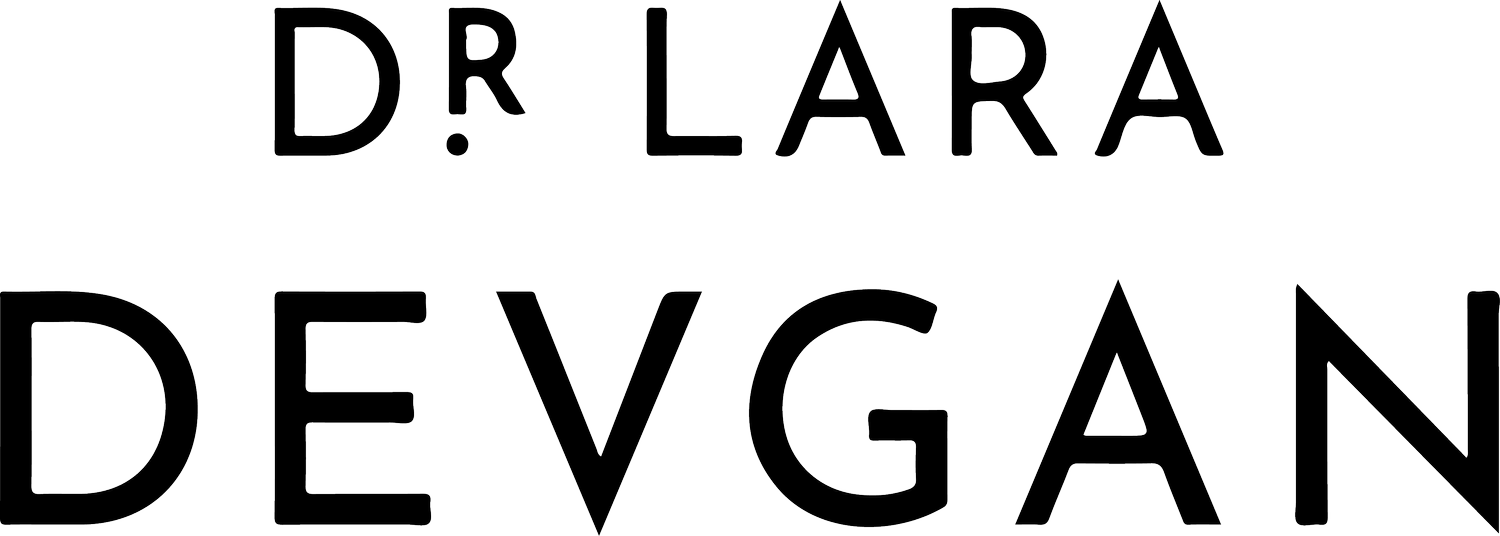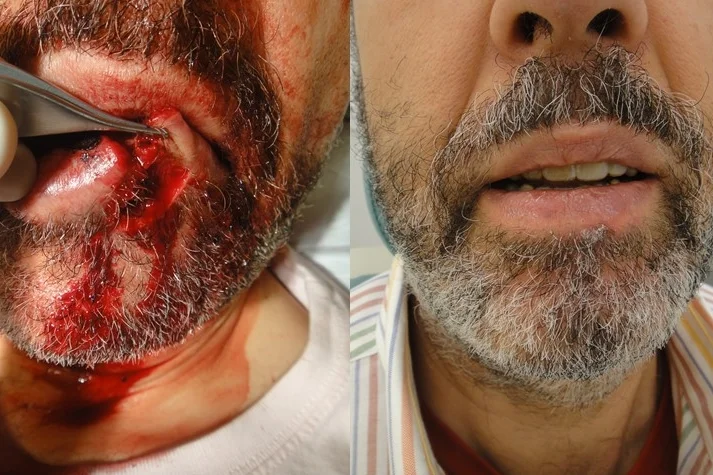Actual patient of Dr. Devgan, before and after plastic surgical repair of facial laceration (stitches for cut on face)
When do you really need to get stitches for a cut?
Getting a cut in your skin from an accident is incredibly common-- whether you tripped and fell, got into a car accident, or had a sports-related mishap. Cuts (or lacerations) are even more common in children than adults-- with playground accidents, bad weather, and general mischievousness being the major culprits.
The big question is: does a cut require stitches? And if a cut requires stitches, do you need a plastic surgeon?
If you have any of the following situations, you need medical attention:
- significant bleeding, or bleeding that doesn't stop
- a cut on a sensitive area of the body (the face, the hands, the genitals, or the breasts)
- a cut that reveals deeper tissue (pale dermis, yellow fat, red muscle, white bone, or white cartilage)
- a cut that is longer than 1 cm
- a cut that is gaping open or opens widely when you move the area
- a cut that is from a cat bite, dog bite, human bite, or other animal bite
- a cut where you may have foreign bodies trapped in your tissue (broken glass, asphalt debris, or other object shards)
- a situation where you may have other injuries, where you blacked out, where you don't clearly remember everything that happened, or where you don't feel normal
- anytime you are not sure, seeking medical help is always the best answer
Do you need a plastic surgeon to do your stitches, or will any doctor suffice?
You are not obligated to have a plastic surgeon repair the majority of cuts or lacerations. In fact, most cuts will heal with minimal to no medical intervention at all. It is part of the magic of the human body-- it (mostly) heals itself. Indeed, in many ERs and medical centers, a physician's assistant, intern, resident in training, or ER doctor is assigned to repair your laceration. This is perfectly fine.
Before deciding if you want a plastic surgeon to repair a laceration, you must ask yourself: how do you want the scar to look after the cut heals?
Wound healing and repair is a fundamental part of the discipline of plastic surgery, and a plastic surgeon's surgical techniques can help you get the best possible cosmetic result.
You may benefit from a plastic surgeon if:
- you are concerned with how the wound will look after it heals
- you want to avoid or minimize scarring
- the cut is on a cosmetically sensitive part of your body (especially the face, hands, or breasts)
- the cut is on a child, especially a child's face
- the cut shows deep tissue, is gaping, is large, or is complex
If you would like Dr. Devgan to help you with surgical laceration repair, please call (212) 452-2400 at any time, 24 hours a day.
Actual patient of Dr. Devgan, before and after plastic surgical repair of facial laceration (stitches for cut on face)
Actual patient of Dr. Devgan, before and after plastic surgical repair of facial laceration (stitches for cut on face)
Actual patient of Dr. Devgan, before and after plastic surgical repair of facial laceration (stitches for cut on face)
Actual patient of Dr. Devgan, before and after plastic surgical repair of facial laceration (stitches for cut on face)

















